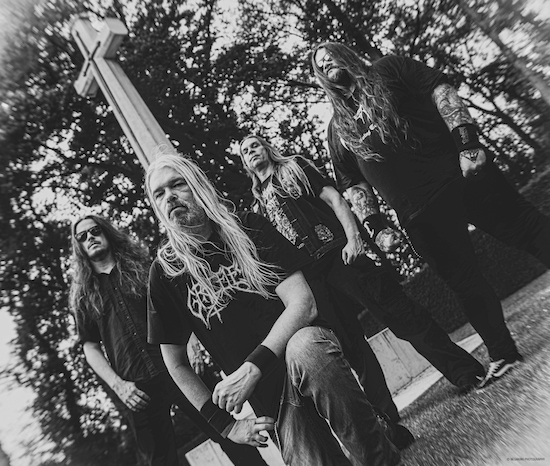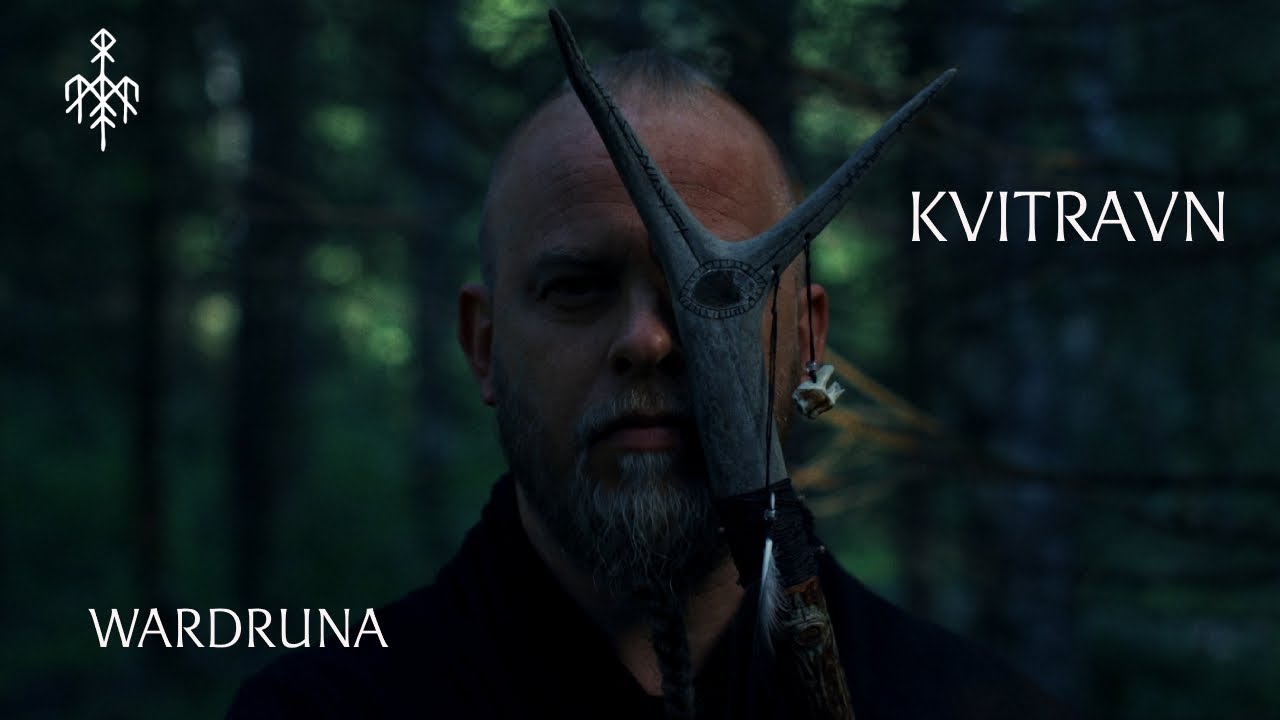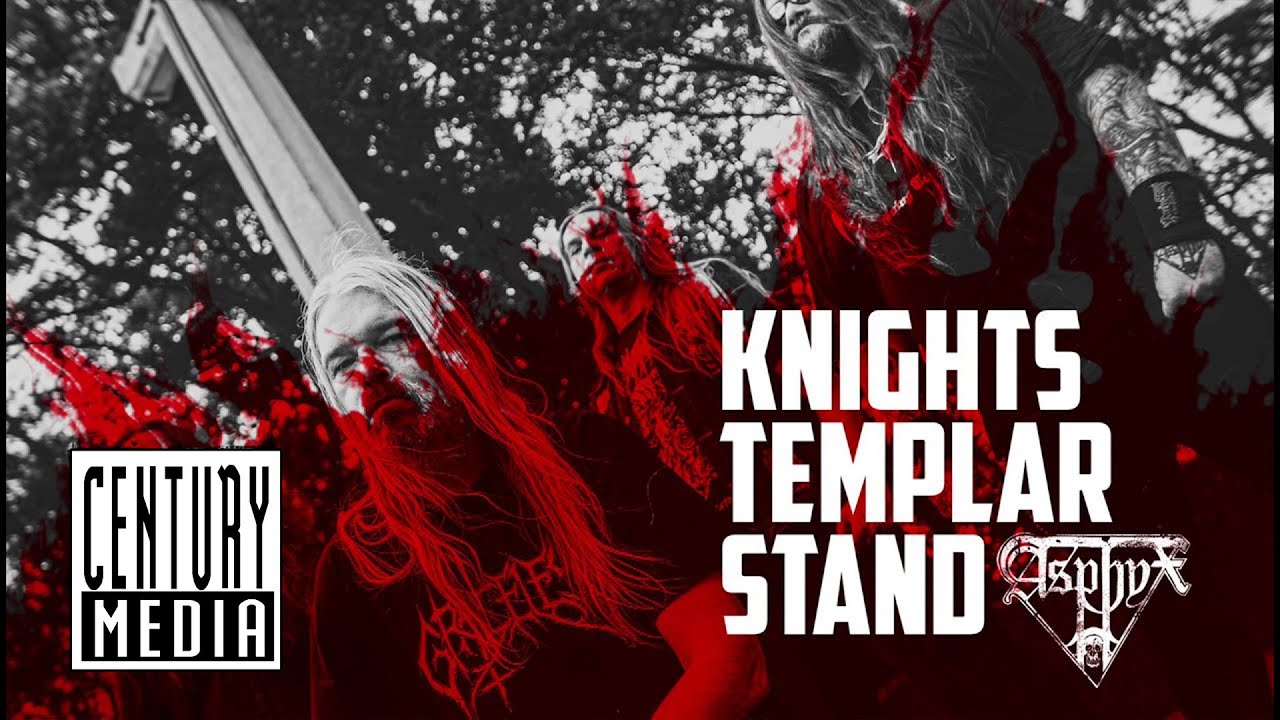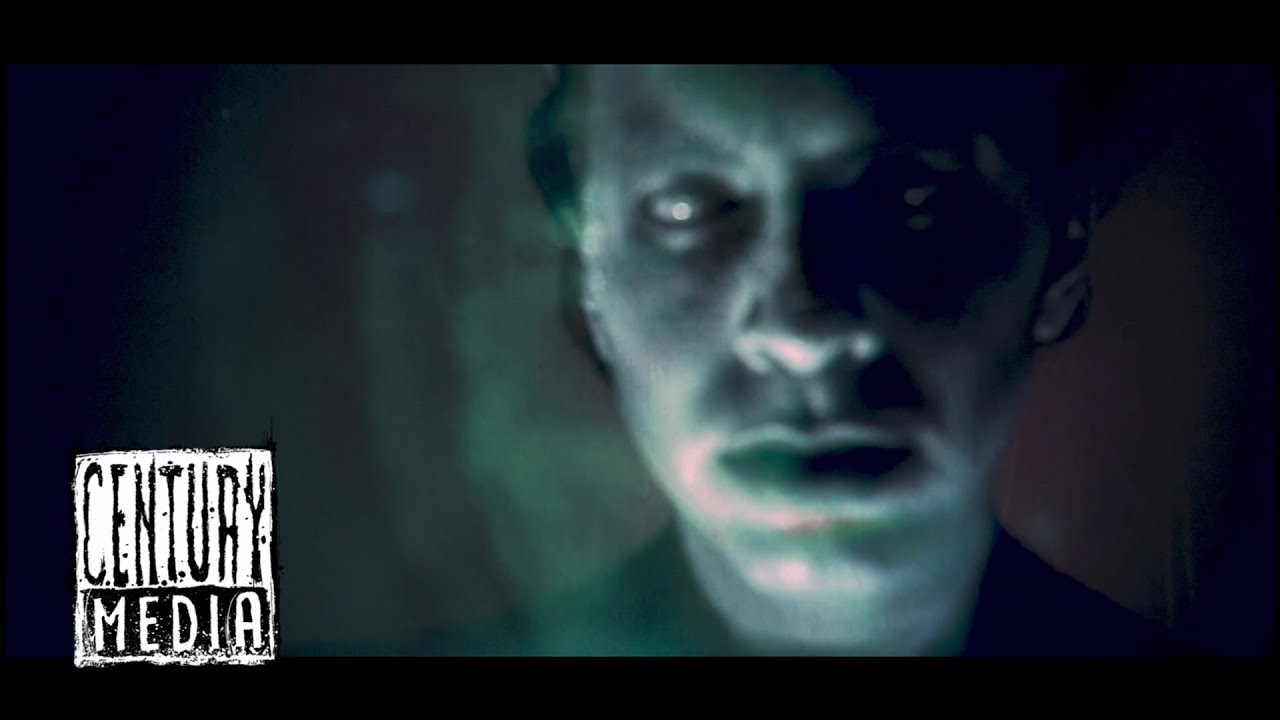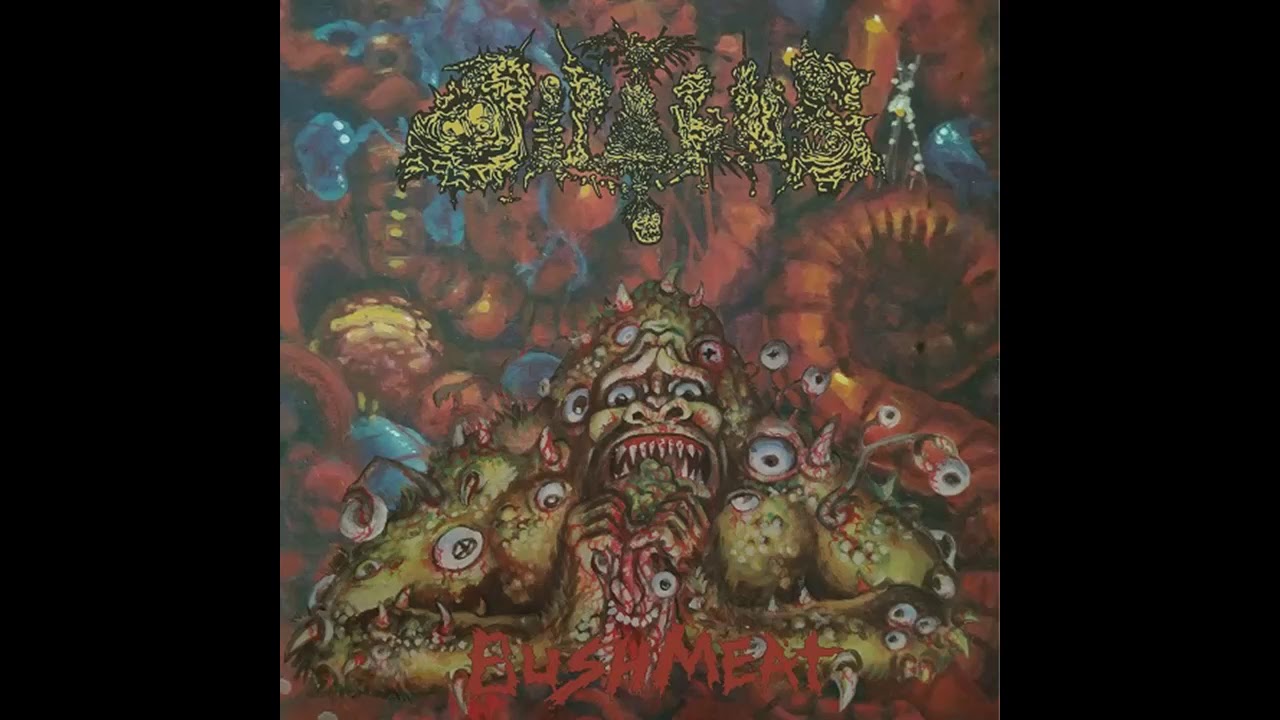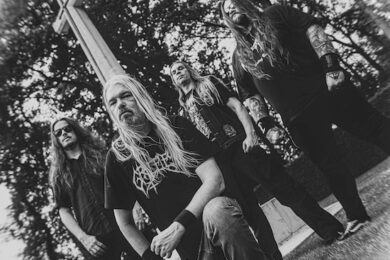Asphyx
Any hopes 2021 would see a return to relative normality have been dashed in record time as Iced Earth guitarist Jon Schaffer made headlines for the first time in, ooh, well over a decade this week, after being snapped amongst the armed, riotous mob of MAGA terrorists that stormed the US capitol.
It’s depressing, but hardly surprising; Schaffer has always been a reactionary right-wing idiot, as anyone who’s had the misfortune of sitting through his unbearably maudlin 9/11-themed ballad, ‘When The Eagle Cries’ will attest.
Whilst many notable metal musicians have already condemned Schaffer, it’s prompted the usual comment section dullards to applaud him for being “anti-government”, seemingly oblivious to the fact that Schaffer was doing his best to violently uphold a corrupt, authoritarian and unelected government.
Let’s be clear; these people are not anarchist freedom fighters whatsoever, these are the Nazi punks the Dead Kennedys warned you about. Remember them? That iconic punk band that mysteriously vanished in the late 80s and, ahem, never stuck around long enough to embarrass themselves on Twitter? Yeah, them.
At least 2021 has given us a suitably intense soundtrack for the ongoing apocalypse so far. In addition to the delights below, the bonus tracks from the die-hard edition of Emma Ruth Rundle & Thou’s incredible collab album are now available as a separate EP, Gatecreeper have dropped a last-minute and surprisingly grindy new EP, and UK sludge/grind monsters Wallowing are re-releasing their triumphant 2019 debut Planet Loss on CD, complete with a full dystopian sci-fi graphic novel from cover artist Luke Oram.
I’ve been listening to The Body’s new one a lot too, which is dissected in greater detail elsewhere on tQ. After I’ve Fought Against It, But I Can’t Any Longer was such a powerful culmination of all their work so far, I couldn’t wait to see where they’d take their sound next. Much like Sunn O)))’s Monoliths & Dimensions, it was one of those records that just made you think, “Fuck, how are they ever going to follow this?”
After a few interim releases, I’ve Seen All I Need To See immediately positions itself as a true follow-up, opening with engineer Seth Manchester’s father reciting from Bohumil Hrabal’s novel Total Fears: Selected Letters To Dubenka in the same style that ended their last record. That’s where the similarities end however, as this one is a much starker, less ostentatious beast. Compared to the last few albums’ huge, layered sounds, the more muted, minimal compositions here have more in common with the bleak, bloody-minded approach of their debut more than anything else they’ve done lately – but the harsh, blown out production pushes it more towards straight-up power electronics than sludge metal.
Wardruna – Kvitravn
(Music For Nations)
Whilst The Body return to a more stripped back sound, Wardruna come back to a more elaborate, fully orchestrated approach. After finishing off their Runaljod trilogy in 2016, 2018’s sparse, acoustic Skald was a bit of a sideways step, showcasing a much more restrained, pensive side of the band, with mixed results. With Kvitravn however, they’re back to their bombastic best, with their atmospheric, cinematic take on Norse folk sounding more sumptuous and immersive than ever. The sweeping horns on tracks like ‘Fylgjutal’ strike a perfect balance between triumphant and achingly, palpably melancholy, whilst the interplay between Einar Selvik’s soaring, dulcet tones and Lindy-Fay Hella’s expressive, Lisa Gerrard-esque wails atop a bed of stirring strings, pounding tribal drums and eerie, patiently unfolding melodies on the title track feels like classic Wardruna. Hella is given centre-stage on the gorgeous ‘Viseveiding’ too, her ethereal pipes contrasting splendidly with the earthy tones and authoritative, war-ready percussion.
The lessons learnt on Skald haven’t been discarded entirely however, with tracks like ‘Munin’ contrasting delicate acoustic strumming and a more wounded, intimate vocal approach from Selvik with luscious, widescreen strings. ‘Kvit Hjort’, meanwhile, has an incredibly still, funereal atmosphere to it, really basking in the eerie textures produced by the group’s signature goat horns. Kvitravn may not reinvent the Wardruna sound, but it’s arguably the most succinct, effective distillation of it thus far.
Asphyx – Necroceros
(Century Media)
It’s rare enough for comeback albums from veteran death metal acts to match the quality of their early classics, but to surpass them is practically unheard of. That’s what makes Asphyx’s glorious second wind so inspiring – after delivering crushing death-doom blueprints like The Rack and Last One On Earth in the early 90s, the band went through numerous different line-ups before fizzling out in 2000. After recruiting former Hail Of Bullets guitarist Paul Baeyens and re-recruiting originalist frontman Martin van Drunen for 2009’s Death… The Brutal Way, their distinctive brand of churning, desolate death metal sounded crisper and more savage than ever, with records like 2012’s Deathhammer and 2016’s Incoming Death ranking amongst the most robust, powerful and memorable albums in their whole back catalogue. Necroceros is only a combo breaker in that it doesn’t have the word “death” in the title; otherwise, it’s another absolute banger. ‘The Sole Cure Is Death’ is one of their best openers, tearing straight out of your speakers with a viciously thrashy neck-snapping pulse, and the moment it abruptly collapses into deep, dark doom sounds apocalyptic, like a planet imploding in on itself. ‘Three Years Of Famine’ is an extraordinarily mournful epic that finds the band incorporating a more funereal influence whilst remaining true to their classic sound, whilst the lumbering ‘Mount Skull’ offers up rich Sabbathian grooves whilst van Drunen demonstrates why he’s one of the most distinctive, celebrated vocalists in the genre – not only for his anguished, throaty yelp but also his thoughtful, imaginative lyrics. Whilst the title track breaks their sound right down to a bleak, punishing dirge (complete with stark Swans-esque drum patterns), Necroceros doesn’t feel like an overtly doomy record overall, with faster tracks like the raging ‘Botox Implosion’ whipping past at brutish speed, whilst ‘Molten Black Earth’ feels like the best song Bolt Thrower never wrote. If there’s one thing we can rely on this year, it’s that Asphyx’s winning streak will show no signs of waning whatsoever.
Frozen Soul – Crypt Of Ice
(Century Media)
This Texan quintet’s 2019 demo Encased In Ice marked them as one of the most promising acts on the much hyped Maggot Stomp label to my ears – and evidently Century Media agreed, swiftly snapping them up for this debut full-length. Whilst not a massive evolution from the demo, Crypt Of Ice hits much harder, with a more thunderous production, tighter performances and even more focussed song-writing. The group’s most obvious influence is still Bolt Thrower, at times almost shamelessly so, but they manage to keep things sounding fresh with a subtle but powerful hardcore flavour and the whole icy aesthetic they’ve crafted for themselves; compared to Bolt Thrower’s warmer, earthier tones, there’s something very cold and barren about the sound of this LP, conjuring images of bleak, frozen wastelands more often than it does sweaty, raging warzones. Vocalist Chad Green’s low, brittle growl wafts through tracks like ‘Arctic Stranglehold’ like a bitterly cold winter wind, and bassist Samantha Mobley’s tone is positively subterranean too, with the enormous, gut-rumbling sub frequencies in ‘Faceless Enemy’s floor-punching breakdown adding a whole new dimension of heaviness. Great stuff.
Dipygus – Bushmeat
(Memento Mori)
The Californian quintet’s 2019 debut Deathooze was a solid slab of grizzly, doomy death metal, but this second record finds them really coming into their own and standing out from the legions of Autopsy clones out there. There’s still a convincing amount of Mental Funeral worship here (check out the crushing, mournful black hole that is ‘Osteodontokeratic Savagery’), but there’s also much more of a grind influence this time round, with strong shades of both Repulsion’s frantic, pulse-racing speed and Impetigo’s wide-eyed, gore-splattered insanity on opener ‘St. Augustine, FL 1896’. Tracks like ‘The Khumjung Scalp’, meanwhile, deftly contrast murky Asphyx-esque death-doom with wild, unexpected passages of sinewy early Carcass style gore-grind. The production is leaps and bounds better too, without losing any of the band’s gruesome, rough-around-the-edges charm – the drums are booming and absolutely crystal clear, with the visceral, warm and sweaty guitar tone leaping right out of your speakers. It’s got a very live sound to it, almost as if the band are playing in the room right next to you – with the exception of vocalist Clarisa’s fantastically inhuman low-end gurgles, that is, which sound like they’re being beamed directly into your pineal gland by some shadowy unseen force. Wrap the whole thing up in the same kind of deranged, fuzzy and obscure atmosphere that pervades your favourite VHS video nasties, and Bushmeat is 2021’s first truly horrifying death metal LP.
Altered Dead – Returned To Life
(Memento Mori)
That’s not the only ripping second album up Memento Mori’s sleeve this month though, with this Canadian duo’s second full-length boasting a massive, detuned guitar tone. They’ve got a huge sound for a two-piece, and this one sounds even bigger than their self-titled 2016 debut, ensuring your gut will rumble every time they hit one of those cavernously down-tuned low notes. Despite the lurching nature of tracks like ‘Empostomb’, the band draw way more from old Swedish death metal than they do the doomier end of the spectrum, with tracks like ‘Final Pathogen’ and the scorching title track flying past in a blur of D-beats and brash buzzsaw riffs. There’s also a great cover of Celtic Frost’s eternal classic ‘Into The Crypt Of Rays’, which begins by teasing out a sample of the original’s eerie intro beneath a wall of piercing harsh noise and then succeeds in being every bit as satisfying as you’d imagine a greasy, detuned death metal version of this song would be. Returned To Life won’t win any awards for originality, but if the thought of old-school Entombed with Mortician’s guitar tone makes you weak at the knees, it’s well worth a spin.
Astral Tomb – Degradation Of Human Consciousness
(Blood Harvest)
Despite their spacy moniker, this Denver trio’s primitive, murky and depraved sound has more in common with Goatlord or Nuclear Death than, say, Nocturnus. There’s an unmistakable allure to the trio’s sloppier approach however, giving you the same kind of buzz that you get from discovering a disgustingly rotten old death metal demo tape, with every buzzing bass frequency, bum note and impenetrable smog of distortion only adding to the thrill. This debut EP finds the three-piece adopting an even more minimal style, dispensing with the more hectic, blastier moments of their Subterranean Forms demo in favour of thicker, slower and doomier riffs. With its blunt, chugging grooves and menacing swagger, opener ‘Devouring Sorrow’ feels like a Suffocation breakdown stretched out into a hypnotic, trance-inducing bludgeoning, whilst ‘Transcendental Visions’ delves further into the abyss with a crushing, no-nonsense slab of death-doom, complete with nightmarish, bad acid trip guitar solos. It’s not pretty, but if you like your death metal slow, slimy and severely unhinged, Degradation Of Human Consciousness is worth checking out.
Antre – Dark Spectrum
(Self Released)
Boasting an even fuller, more crushing sound than their 2019 debut album Void, this new EP finds Nottingham black metal quintet Antre sounding more vicious than ever. Whilst firmly rooted in black metal, the group’s diverse set of influences lend their sound sprinklings of death metal, sludge, hardcore punk, post metal and even a smidgen of classic rock in some of the flamboyant guitar licks too – just check out blistering opener ‘Through These Dead Eyes’ for hints of all the above. The cohesive, organic song-writing and sheer ferocity with which everything whips past prevents the aptly titled Dark Spectrum from ever feeling like a random grab bag of ideas however, and there’s not only a clear focus throughout, but riffs by the fucking gallon too. ‘Mask Of The Saviour’ offers up both emotive, almost post-hardcore guitar swells and gigantic, rolling tremolo churns, whilst ‘Become The Damned’ comes storming out of the gate with the kind of big, boisterous bastard of a riff that can’t help sending follicles flailing, before unleashing all manner of righteous Quorthon worshipping leads and stirring, infectious dual guitar harmonies over ruthlessly tight blastbeats. Vocalist Patrick MacDonald shows off his range a bit more on this EP too, veering between acerbic high-end croaks, deep guttural grunts, more anxious, throaty hardcore yelps and even a dramatiuc spoken word section on ‘Mask Of The Saviour’. Just the tonic for blasting away those January cobwebs.
Here Lies Man – Ritual Divination
(RidingEasy)
As far as band concepts go, “What if Black Sabbath played Afrobeat?” is a particularly irresistible one, and one that’s served Here Lies Man well for four albums now. Whilst they haven’t changed their formula too much here, Ritual Divination is arguably the most complete, refined and sprawling example of their unique sound yet – the riffs are heavier, the grooves more danceable and the atmosphere even more psychedelic and free-flowing. Running at a solid hour, the album is twice as long as all their others, yet the loose, jam band vibe means it seems to breeze past. Maybe it helps that it’s probably their most complex compositionally, too – whilst earlier tracks would often be based around one good hook and a supremely fuzzy riff, pieces like the wistful, proggy ‘I Told You (You Shall Die)’ and hypnotic, transcendental finale ‘Cutting Through The Tether’ are intent on taking the listener on a more elaborate, fleshed out sonic journey. Tracks like ‘Can’t Kill It’, on the other hand, are pure riff worship of the highest order, as driving, distorted guitars are welded to fluid, funky rhythms with consummate ease.
Eximperituserqethhzebibšiptugakkathšulweliarzaxułum – Šahrartu
(Willowtip)
Fear not, readers, I haven’t just had a brain aneurysm; this Belarusian death metal outfit is indeed called Eximperituserqethhzebibšiptugakkathšulweliarzaxułum (or Eximperitus if you don’t want to be forever telling your friends about “that band with the long name I can’t pronounce”). Name based notoriety aside, the band’s 2016 debut (which I can’t utter here lest I breach my word count) injected that precision, modern tech-death sound with lethal doses of otherworldly atmosphere, high concept psychedelic flavour and intricate but memorable song-writing. You could argue that what Blood Incantation have done for the classic Morbid Angel sound, Eximperitus are now doing for the newer Origin school of tech-death. Second album Šahrartu feels like a much more compact, stream-lined and efficient experience than its predecessor, despite being a longer record. It’s far more focussed, for one, but also allows their dense, brutal style more breathing room, most notably in the crushing ten minute centrepiece ‘Inqirad’, a total behemoth of a tune that dishes out space-fearing solos and thunderous, de-tuned grooves. ‘Anhutu’ balances ancient, oddly melancholy sounding lead guitar atop dizzying swathes of blistering yet celestial tremolo, before unleashing an absolute monster of a breakdown riff atop absurdly fast double-kick, conjuring that same powerful sense of menace that has always made Nile such a force to be reckoned with. Whilst less fiddly and technical sounding than their debut overall, tracks like ‘Tahadu’ still excel in frantic, lazer focussed riffing patterns à la Necrophagist, but their increased melodic sensibility makes them even more memorable and affecting this time round – just check out the gigantic, majestic chorus riff in ‘Utpada’ for instance. Šahrartu is a breath of fresh air amidst the oft sterile moden tech-death scene, and emphatic proof that this band has more to offer than their mouthful of a moniker.

